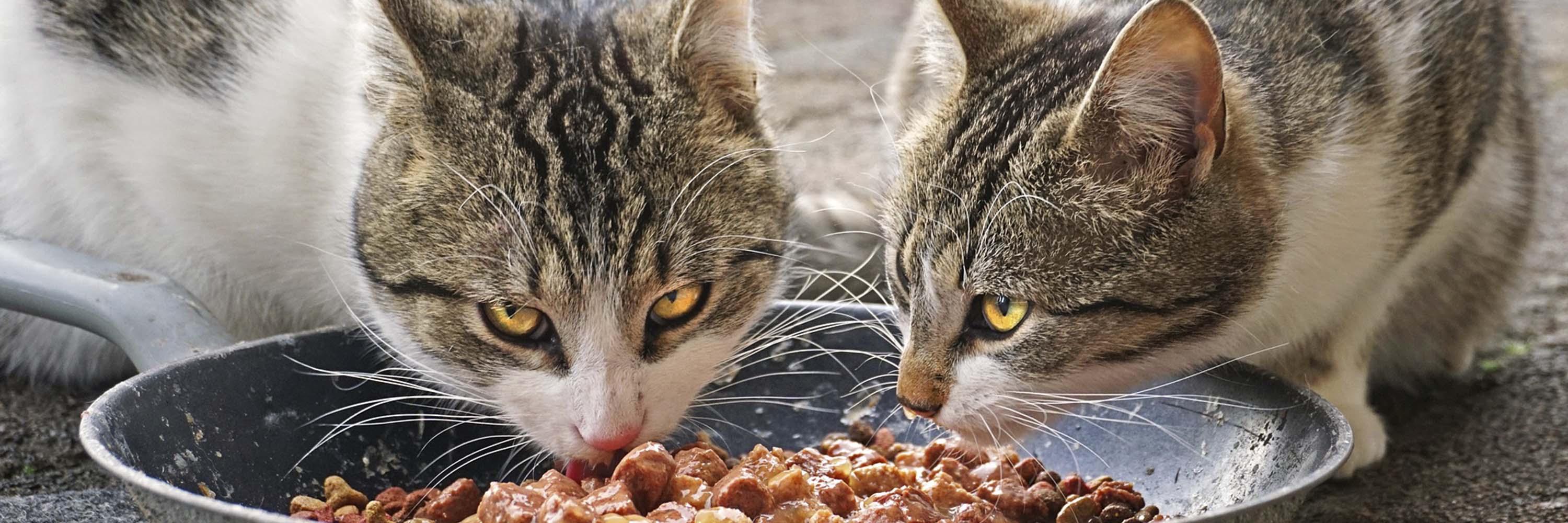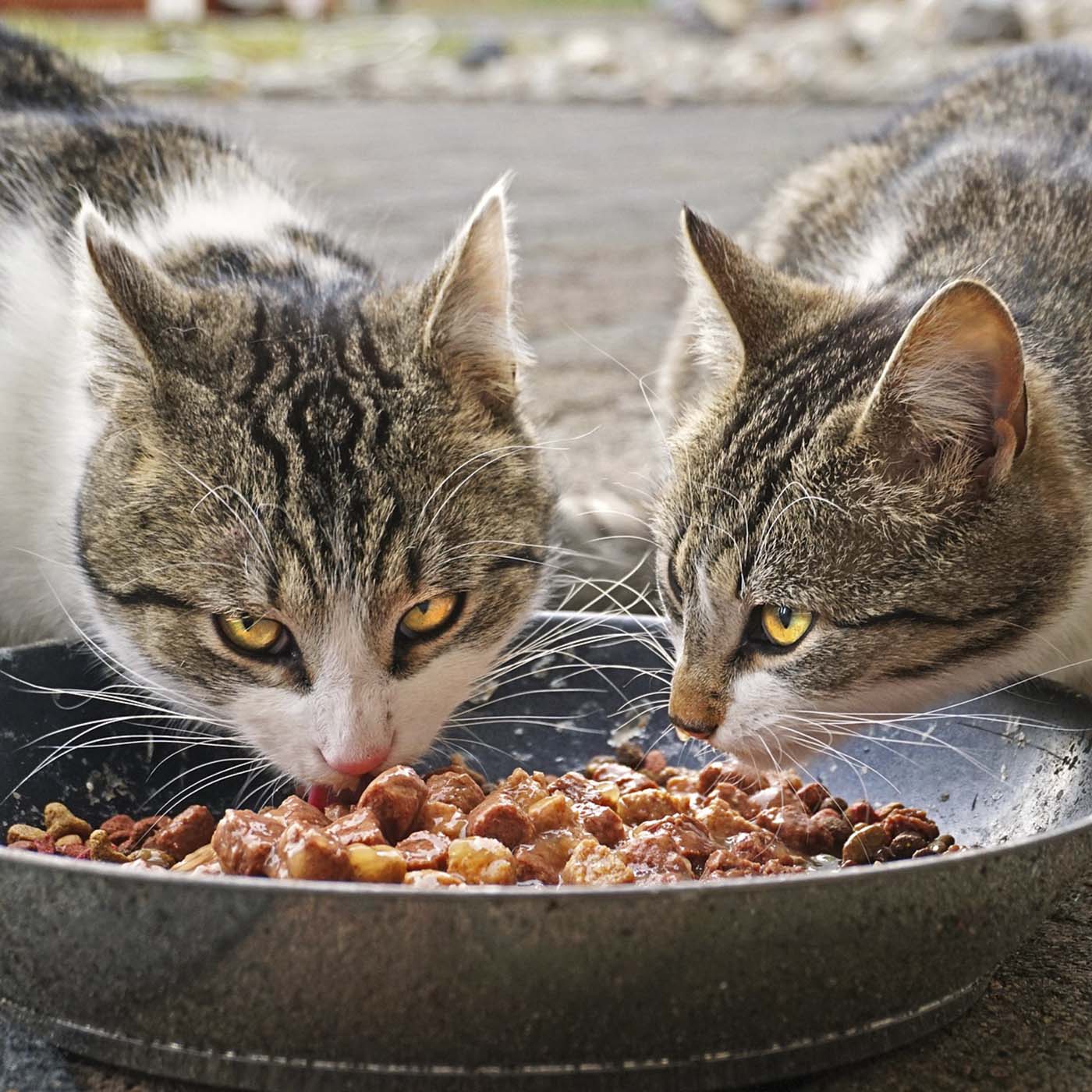

Farmed Animal Welfare Standards in the Pet Food Industry
Some pet food brands are upping their sourcing standards while others (and human food companies) lag behind
Some exciting news for farmed animals in recent weeks comes out of the pet food sector. The UK company Beco recently became the first pet food company to sign on to the Better Chicken Commitment, and Bond Pet Foods in Colorado just announced it has developed the world’s first animal-free chicken protein for dog and cat nutrition. This puts Beco and Bond well above other pet food brands (and most human food brands) when it comes to ethical protein sourcing. (As one UK journalist recently put it, “Fast food chains including Mcdonald’s and Subway are now serving chicken with lower welfare standards than Beco dog food…”)
WHAT ENDS UP IN OUR COMPANION ANIMALS’ FOOD?: These announcements are especially noteworthy when one considers just how little importance the pet food industry has given to farmed animal welfare generally. In the U.S., “adulterated” meat products—that is, any “product of a diseased animal or of an animal which has died otherwise than by slaughter”—may be used as an ingredient in pet food despite being considered “unfit for human consumption.”
UNFIT FOR HUMAN CONSUMPTION: Animals who have “died otherwise than by slaughter” inevitably suffered agonizing deaths from starvation, disease, organ failure, hypothermia (freezing), hyperthermia (heat stress), suffocation, or “depopulation”—all consequences of factory farming’s defining traits: filthy housing systems, stressful transport conditions, selective breeding, and extreme crowding in economies of scale. Of course, even “human grade” pet foods fall well below the standards of Beco and others, since they need only meet the lowest possible regulatory standards for human foods, which still means subpar conditions for farmed animals.
RAISING OUR STANDARDS: An ever-growing number of conscientious consumers are demanding more, both for themselves and their pets. When it comes to pet food, this demand comes not only out of a concern for their furry family members’ health but also concern for the welfare of the animals who become ingredients in their pets’ foods. This makes sense: Conscientious consumers who tailor their own diets to avoid supporting certain cruel animal agriculture practices understandably desire similar ethical standards for all the consumer products they buy, from household cleaners and cosmetics to pet foods.
POSITIVE STEPS MAKE AN IMPACT: The potential impact of improving standards in the pet food sector is truly enormous: According to the author of The Clean Pet Food Revolution: How Better Pet Food Will Change the World, dogs and cats in the U.S. alone equal the fifth largest country in the world in terms of animal protein consumption. Indeed, our companion animals “have become an integral part of human society, which means that the way we feed them must also become part of the changes we make.”
“HUMANE” MARKETING STRATEGY: Recognizing there is a market for moral consistency when it comes to animal welfare across consumer good sectors, many “premium” pet food brands have shifted their marketing focus from one solely grounded in quality (e.g., “healthy, tasty, and safe”) to one that presents a more well-rounded ethical brand image encompassing not only product quality attributes but also high production standards (e.g., farmed animal welfare and environmental impact, with claims like “humanely raised,” “ethically sourced,” and “sustainable”).
FIGHTING MISLEADING CLAIMS: These “credence attributes,” as they are called, are highly motivating to consumers but difficult to independently verify. This makes such claims especially susceptible to exaggeration and falsity, deceiving consumers as a result and hampering the market for more ethical products. For this reason, Animal Equality is working to nip misleading pet food claims in the bud before they become the industry standard, as they have for certain human foods.
CONSUMER EXPECTATIONS: To be sure, most pet food brands still fall far short of the legal and ethical standards achieved by purveyors of foods for humans. For example, while the number of restaurants, hotels, and food-service companies committing to animal welfare improvements such as the Better Chicken Commitment (BCC) continues to grow, even the highest-quality pet food brands don’t meet consumer expectations when it comes to farmed animal welfare. This discrepancy is illogical when you consider that the market for higher-welfare animal ingredients is borne out of a concern for what happens in the production of a product, regardless of its end use.
Thankfully, the recent news about Bond, Beco, and others offers a glimmer of hope that this discrepancy between human and companion-animal food standards when it comes to farmed animal welfare may be narrowing.
IMPROVEMENTS NEEDED: In sum, pet food companies that market themselves as high-welfare need to be doing better, especially as more and more human food brands are raising their standards. As marketing terms such as “humane” and “ethically sourced” come to be associated with the standards of the BCC or equivalent, other brands that use similar marketing terms despite adhering to lower production standards could open themselves up to liability for consumer deception, since the legal standard for false advertising shifts along with consumer expectations.
Animal Equality is working to ensure terms like “humane” are reserved for only the highest welfare practices (or, preferably, products free of animals altogether). Anything less than the best cannot reasonably be marketed as “humane.”
WHAT YOU CAN DO: As we’ve seen in our investigations time and time again, clever marketing claims can often be misleading. In addition to looking into the claims made by your favorite companion animal food brand, you can help by simply leaving animals off your own plate! Check out Love Veg for tips for getting started.

